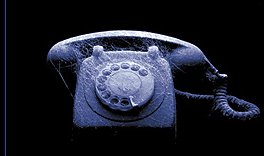I'm guessing you've heard jokes about engineers in sales. Accountants, contractors, PhD's, and lawyers don't have stellar reputations in sales either. Yet these professions generally are an intelligent lot. They are quite skilled at what they do since our daily lives may depend on their specific calculations and recommendations. I transferred from engineering into sales in 1988...
Here's how I used to sell: 1) Research the prospect and prepare a powerful presentation that applied specifically to them. 2) Provide the prospect with detailed features about the product. 3) Explain how these features worked and the significant benefits they would create. 4) Show the prospect an applicable analysis of return-on-investment and estimate how much money would be saved over time. 5) Ask the prospect how many of my products they would like to purchase.
If the prospect suggested a problem with the analysis or why the features weren't so beneficial, I would use my debate and technical skills to refute their argument and reaffirm my claim. My product knowledge was impeccable and I let no prospect get away until I had supported my argument and convinced them I was correct.
In the spirit of successful engineering, I had created a repeatable and systematic approach to selling. There was only one problem: My prospects rarely bought anything. It was a great way to prove my product knowledge but it wasn't an effective method for closing new business.
Product Knowledge Used at the Wrong Time Can Be Intimidating
In a sales discussion, there is only one person who can "convince" the prospect and it isn't the engineer or salesperson... Prospects base their buying decisions on their own personal and intellectual reasons. Studies show that salespeople who suggest benefits that aren't perceived as valuable or applicable to the prospect are actually undermining the sale...
Debates are useful to convince a third party such as a judge or observer that welcomes all viewpoints. There, the relationship between the two opposing parties is usually adversarial. However, adversarial relationships don't support buying in two party interactions. Words and phrases containing "I disagree," "That's not true" and the infamous "But" can destroy the delicate relationship between buyer and seller in a matter of seconds. While this may be intuitively obvious to most readers, they may be surprised to hear themselves saying something similar on their next challenging sales call.
Successful salespeople spend more time on the "why" questions than a traditional salesperson. They bend over backwards to find ways to agree with their prospects and probe for deeper understanding instead of taking an opposing view. Start using insightful questions to help your prospects "discover" why they should buy and watch your closing ratio improve.
Let us know your thoughts on this!






